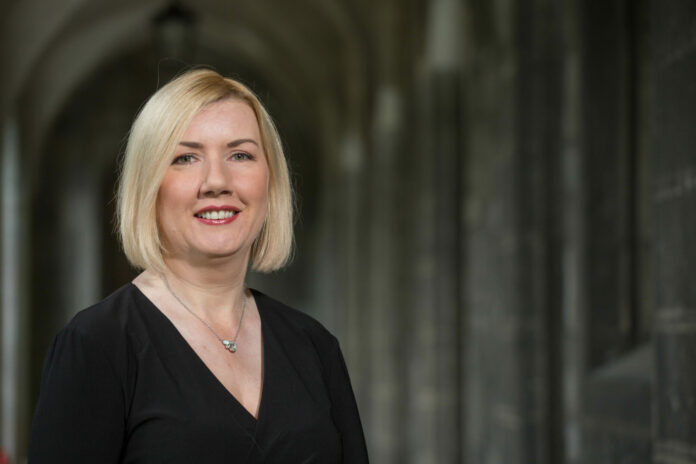RESEARCH involving Clare natives at NUI Galway and the Western Development Commission (WDC) shows that the vast majority of employees favour some form of remote working.
The National Remote Working Survey was led by Professor Alma McCarthy from Labasheeda who is Head of the JE Cairnes School of Business and Economics and Tomás Ó Síocháin, CEO of the WDC, a native of Quin.
The survey is the second of its kind since the pandemic began and found that among those who could work remotely, 95% were in favour of doing so on an ongoing basis.
The majority of those, 53%, said they would like to work remotely several times a week, 32% said they would like to work fully remotely and 10% several times a month.
The number of people who would like to work fully remotely (32%) has increased substantially from the first national survey conducted in April 2020 when it stood at 12%.
The figure of 95% is a significant increase from the 83% who wanted to continue to work remotely for some or all of the time in the 2020 survey.
Conversely, only 5% indicated that they did not wish to work remotely to any extent – a drop from 16% who gave that response a year ago.
The number of respondents working fully remotely fell from 87% in April 2020 to 75% at the end of April 2021 as there was more of a mix of on-site and remote (20%) in the latest survey.
The survey found that 24% of respondents said they would consider relocating based on their experience of remote working since Covid-19.
A further 9% said they had already moved and the West (Galway, Mayo, Roscommon), the South-west (Cork and Kerry) and the Border (Cavan, Donegal, Leitrim, Monaghan and Sligo) were the top regions respondents have relocated to.
Some 14% said they may consider moving, while just over half (53%) said they would not consider relocating.
According to the survey the top three advantages of working remotely are greater flexibility, makes life easier, and increases productivity.
“Interestingly, in the context of work-life balance, 51% of respondents said that they work more hours when they work remotely compared to working on-site while 45% say they work the same hours.
In terms of the perceived impact on productivity, 44% of team managers believe that remote working positively impacts, while the same proportion (44%) believe that remote working makes no difference to the team’s productivity.
Only 12% believe remote working negatively impacts their team’s productivity.
“The second annual NUI Galway/Western Development Commission national remote working survey has, once again, gained huge interest with over 6,400 responses,” said Professor McCarthy.
“We added a new module asking questions about managing teams remotely for those who have people management responsibilities.
Ó Síocháin, CEO of the WDC noted that implementing the wishes of employees would require significant change in the way in which people work and the way that organisations support that work.
“The rollout of the National Hubs Network of more than 400 hubs will offer a suitable workplace close to home,” he said.
“A key challenge for leaders in organisations will be ensuring that people that choose to work remotely are treated equally in terms of development and promotional opportunities.”
The analysis of initial summary findings which are available on both NUI Galway’s Whitaker Institute and the WDC websites.
Clare natives lead way in researching working trends

